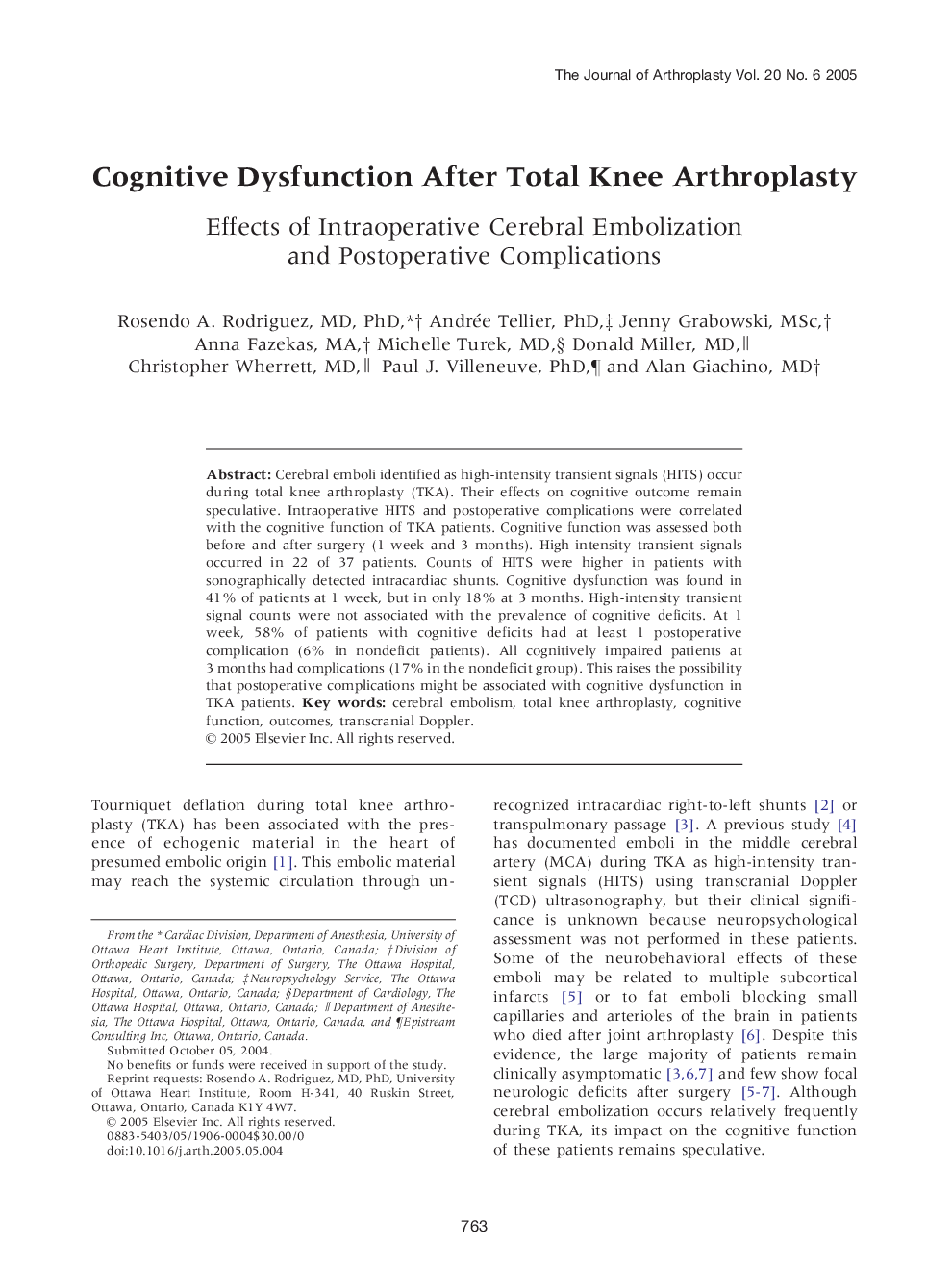| Article ID | Journal | Published Year | Pages | File Type |
|---|---|---|---|---|
| 10081701 | The Journal of Arthroplasty | 2005 | 9 Pages |
Abstract
Cerebral emboli identified as high-intensity transient signals (HITS) occur during total knee arthroplasty (TKA). Their effects on cognitive outcome remain speculative. Intraoperative HITS and postoperative complications were correlated with the cognitive function of TKA patients. Cognitive function was assessed both before and after surgery (1 week and 3 months). High-intensity transient signals occurred in 22 of 37 patients. Counts of HITSs were higher in patients with sonographically detected intracardiac shunts. Cognitive dysfunction was found in 41% of patients at 1 week, but in only 18% at 3 months. High-intensity transient signal counts were not associated with the prevalence of cognitive deficits. At 1 week, 58% of patients with cognitive deficits had at least 1 postoperative complication (6% in nondeficit patients). All cognitively impaired patients at 3 months had complications (17% in the nondeficit group). This raises the possibility that postoperative complications might be associated with cognitive dysfunction in TKA patients.
Related Topics
Health Sciences
Medicine and Dentistry
Orthopedics, Sports Medicine and Rehabilitation
Authors
Rosendo A. MD, PhD, Andrée PhD, Jenny MSc, Anna MA, Michelle MD, Donald MD, Christopher MD, Paul J. PhD, Alan MD,
